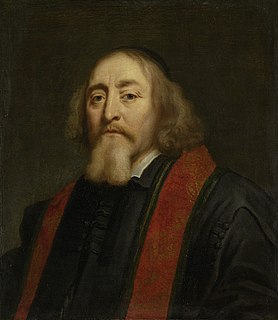A Quote by Alexander Pope
Of little use, the man you may suppose,
Who says in verse what others say in prose;
Yet let me show a poet's of some weight,
And (though no soldier) useful to the state,
What will a child learn sooner than a song?
What better teach a foreigner the tongue?
What's long or short, each accent where to place
And speak in public with some sort of grace?
Related Quotes
Yet each man kills the thing he loves, By each let this be heard, Some do it with a bitter look, Some with a flattering word, The coward does it with a kiss, The brave man with a sword! Some kill their love when they are young, And some when they are old; Some strangle with the hands of Lust, Some with the hands of Gold: The kindest use a knife, because The dead so soon grow cold. Some love too little, some too long, Some sell, and others buy; Some do the deed with many tears, And some without a sigh: For each man kills the thing he loves, Yet each man does not die.
There are some who wish to learn for no other reason than that they may be looked upon as learned, which is ridiculous vanity ... Others desire to learn that they may morally instruct others, that is love. And, lastly, there are some who wish to learn that they may be themselves edified; and that is prudence.
If idioms are more to be born than to be selected, then the things of life and human nature that a man has grown up with--(not that one man's experience is better than another's, but that it is 'his.')--may give him something better in his substance and manner than an over-long period of superimposed idiomatic education which quite likely doesn't fit his constitution. My father used to say, 'If a poet knows more about a horse than he does about heaven, he might better stick to the horse, and some day the horse may carry him into heaven'
We teach children to save their money. As an attempt to counteract thoughtless and selfish expenditure, that has value. But it is not positive; it does not lead the child into the safe and useful avenues of self-expression or self-expenditure. To teach a child to invest and use is better than to teach him to save.
I’m writing this in part to tell you that if you ever wonder what you’ve done in your life, and everyone does wonder sooner or later, you have been God’s grace to me, a miracle, something more than a miracle. You may not remember me very well at all, and it may seem to you to be no great thing to have been the good child of an old man in a shabby little town you will no doubt leave behind. If only I had the words to tell you.
And it is a singular truth that, though a man may shake off national habits, accent, manner of thinking, style of dress,--though he may become perfectly identified with another nation, and speak its language well, perhaps better than his own,--yet never can he succeed in changing his handwriting to a foreign style.
Some people say heroines just have to look good and provide the glamour. Some say, from dance-n-song routines, heroines have come a long way. Today, the heroine's name adds weight to the film, though maybe they can't carry the whole film on their names. I believe, yes, we do contribute a lot to films.
If, in each hour, a man could learn a single fragment of some branch of knowledge, a single rule of some mechanical art, a single pleasing story or proverb (the acquisition of which would require no effort), what a vast stock of learning he might lay by. Seneca is therefore right when he says: "Life is long, if we know how to use it." It is consequently of importance that we understand the art of making the very best use of our lives.
No sooner does a great man depart, and leave his character as public property, than a crowd of little men rushes towards it. There they are gathered together, blinking up to it with such vision as they have, scanning it from afar, hovering round it this way and that, each cunningly endeavoring, by all arts, to catch some reflex of it in the little mirror of himself.





































